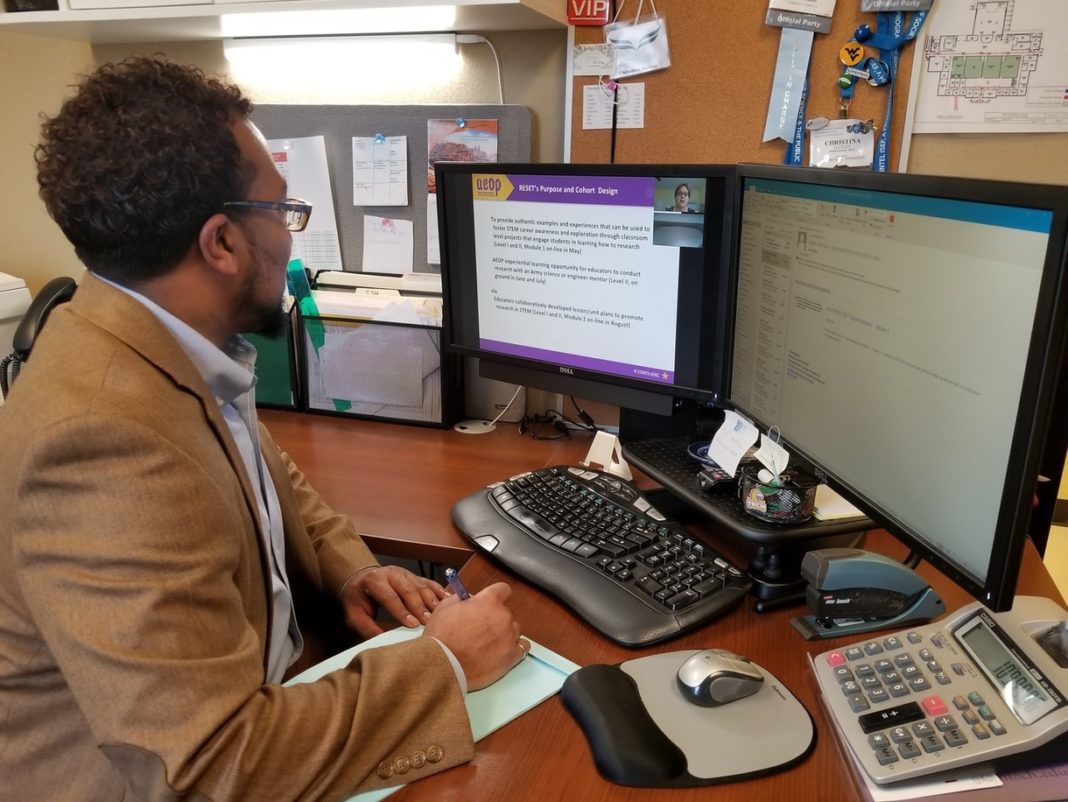COOKEVILLE – From STEM classrooms across the country, to Army research labs and back, a program developed by Sally Pardue, director of the Oakley STEM Center at Tennessee Tech University, and facilitated through the U.S. Army Education Outreach Program is providing high school and middle school teachers in the fields of science, technology, engineering and math with the knowledge and confidence to bring research into their classrooms.
RESET, Research Experiences for STEM Educators and Teachers, allows cohorts of teachers from all over the U.S. to participate in 60 hours of online professional development over the summer with the opportunity to spend four weeks participating in research opportunities at an Army research lab, mentored by Army and Department of Defense professionals.
“The goal of RESET is to reinforce teachers’ context knowledge through research experience and interactions with Army and Department of Defense scientists and engineers,” said Shabir Bhegani, who served as operations assistant for the program while studying as a graduate student in civil and environmental engineering at Tech. “This program empowers teachers to use research in the classroom by collaboratively developing lesson plans that incorporate the research elements of the Legacy Cycle, which encourages cross-discipline thought.”
Since the program began in 2016, RESET has empowered more than 39 teachers from across the United States to incorporate research in their classrooms.
“Encounters with RESET alerted me of direct student need to experience and to comprehend true value and meaning of research,” said Tracey Davis a teacher from Highland Rim School in Fayetteville, Tennessee. “My students need to be aware of how scientists and researchers are solving real-world problems with science and technology. I have been able to take experiences back to the classroom, but the most impactful information I have been able to convey is how all projects were only made possible by the collaboration among team members.”
RESET teachers have created lessons plans that drew engineering and business students together to build a robot, analyze the cost-benefit of the build and create materials to market the robot; to design, test and build an improved football helmet to prevent traumatic brain injury; and other cross-disciplinary, research-based lessons.
“Many students are challenged by real-world understanding of research,” Davis said. “They fail to link true research with controlling experiments and producing clear data. Research is important to student learning because they become problem solvers and creative thinkers as they work through problems. If educational institutes can create students who are able to think critically and solve problems, then we will succeed in providing society with the next generation of problem solvers.”
As a new cohort of educators begins their work this summer, they have the same goal in mind: to learn more about research so they can teach more about research.
For more information about the RESET program, visit https://www.usaeop.com/program/reset/.









